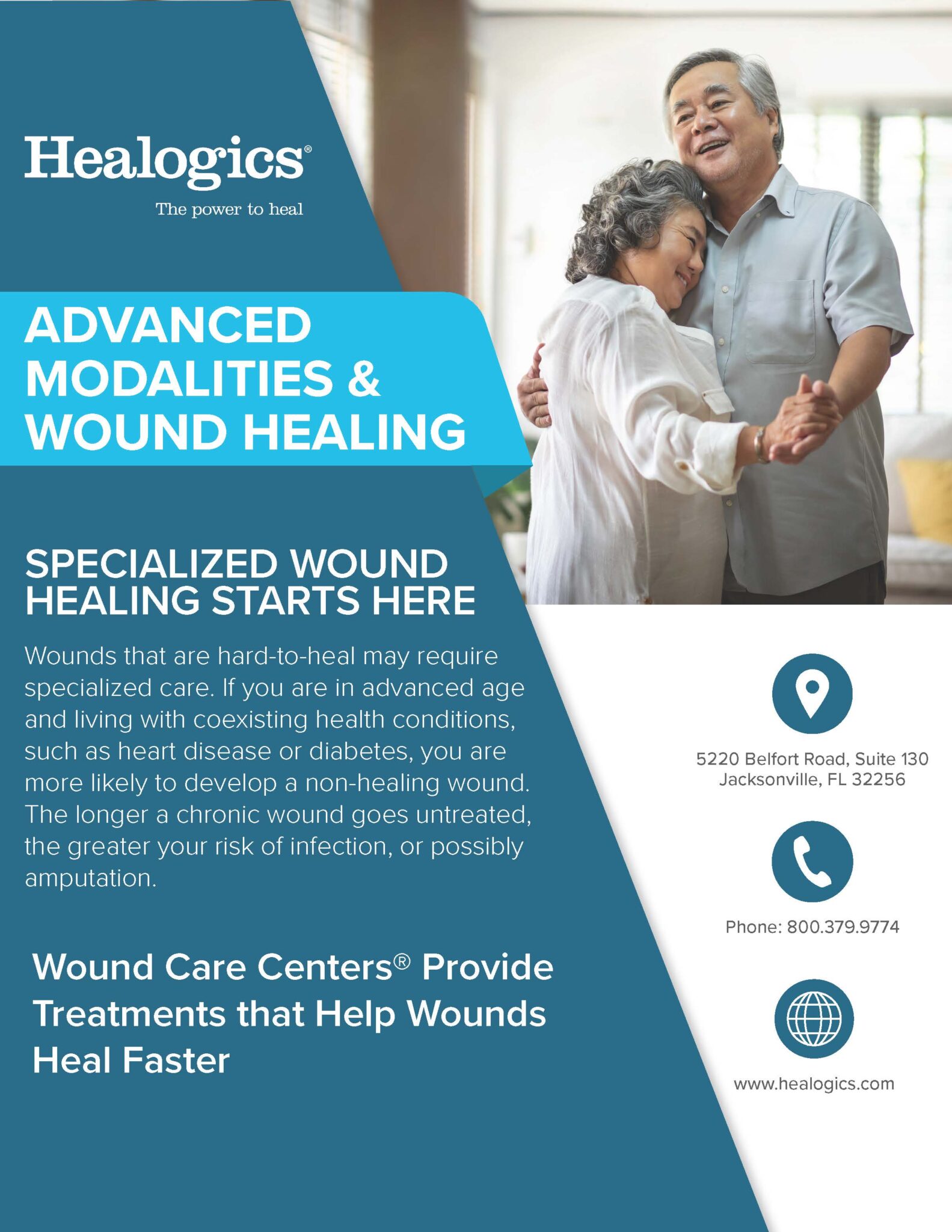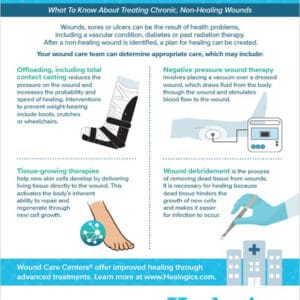2021 The Year of Healing Gets Better Every Day
We’re so glad you found us. Whether you are living with a chronic wound or caring for someone who is, we’re here to help. This webpage provides information to help you understand why some wounds need specialized care to heal. You’ll also find tips for improving your overall wellness. Please search our blog, download free educational handouts or find a Center near you.
Advanced Modalities & Wound Healing
In December, Healogics focuses on spreading awareness about advanced wound care treatments
Wounds that are hard-to-heal may require specialized care. If you are in advanced age and living with coexisting health conditions, such as heart disease or diabetes, you are more likely to develop a non-healing wound. The longer a chronic wound goes untreated, the greater your risk of infection, or possibly amputation.
Some of the methods may include:
- Debridement
- Pressure relief or “off-loading”
- Tissue-growing therapies
- Negative pressure wound therapy
- Hyperbaric Oxygen Therapy (HBO)
Access Advanced Modalities Infographics by clicking the buttons on the right
Advanced Modalities Infographic
Foot Health & Preventing Wounds
Find out who is most at risk for common types of foot ulcers and how to prevent them.
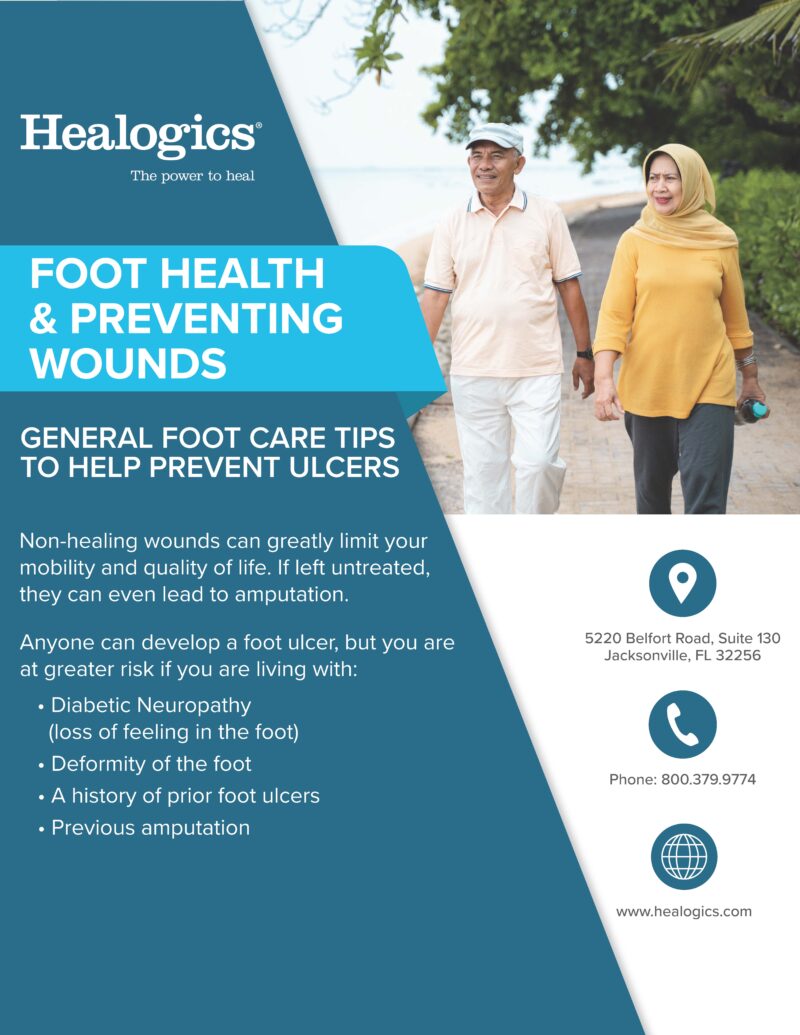
Advanced Wound Care Treatments
Learn more about the advanced wound care treatments that can help chronic wounds heal faster.
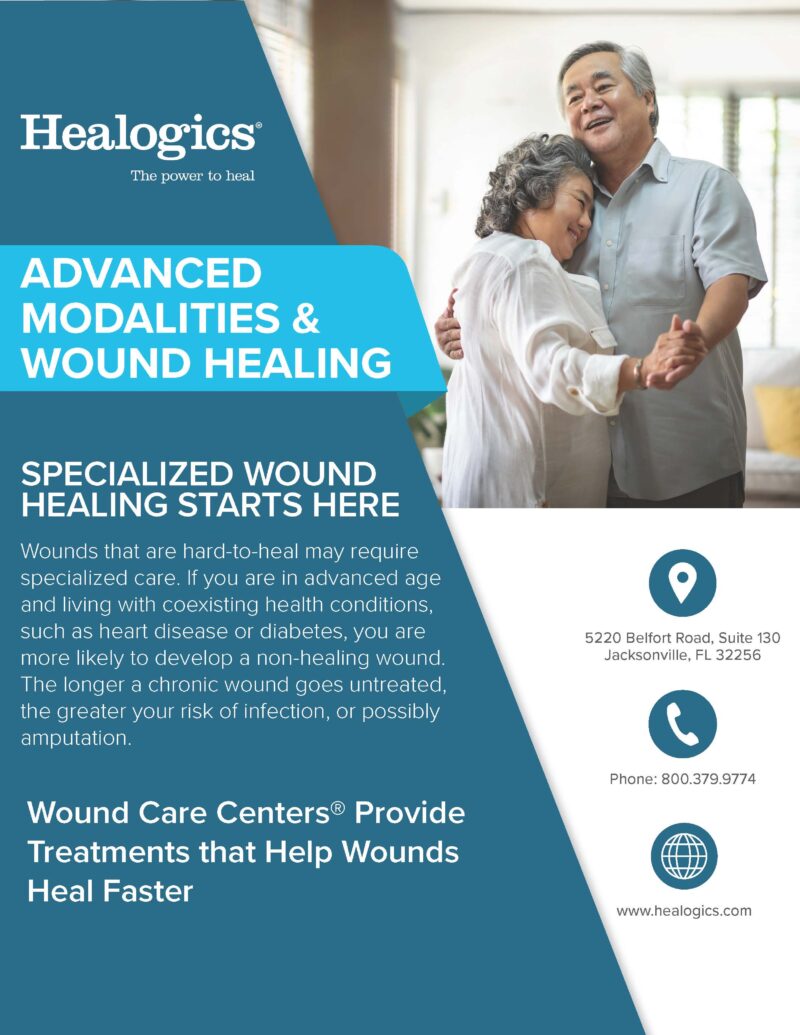
Arterial and Venous Ulcers
Understand the risks of arterial and venous ulcers, learn steps to prevent them and options for treatment.
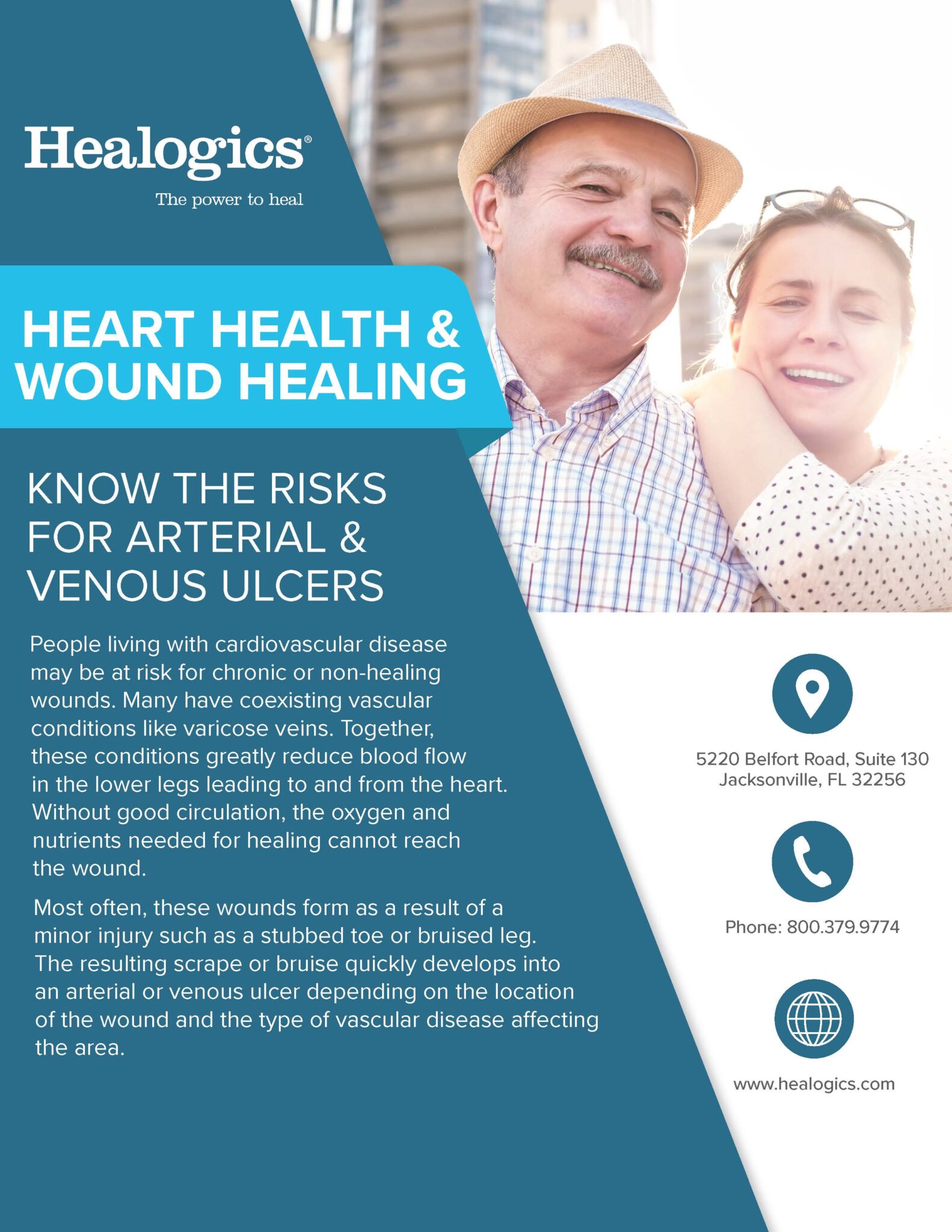
Diabetic Foot Ulcers (DFUs)
Understand the risks of diabetic foot ulcers, learn steps to prevent them and options for treatment.
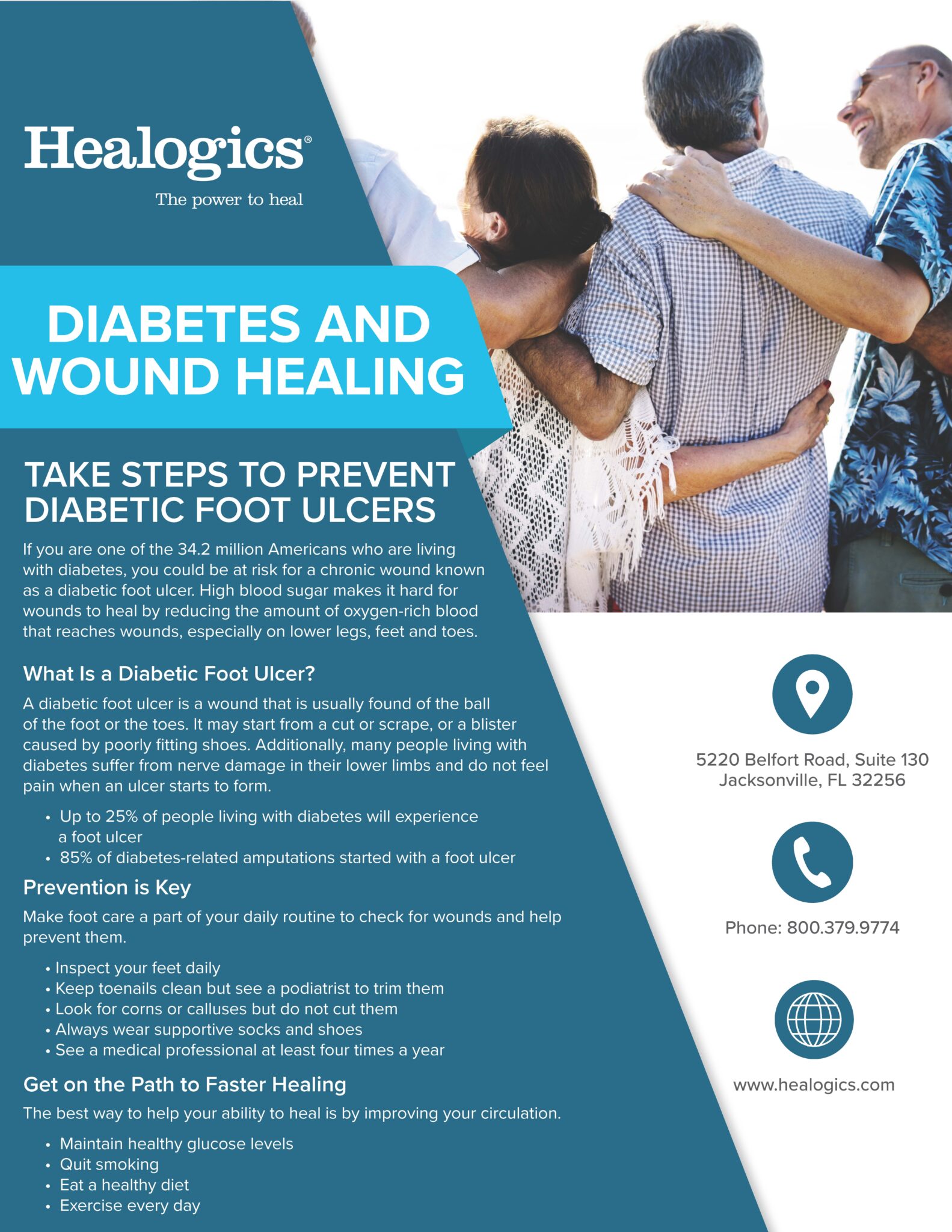
Request an appointment
Healogics is the expert in wound healing. Over the past 30 years, we have treated over 300,000 patients each year and healed over 4 million wounds. Wound care is what our specialists do all day, every day. We are ready to see you at one of our 600+ Wound Care Centers® across the country.

